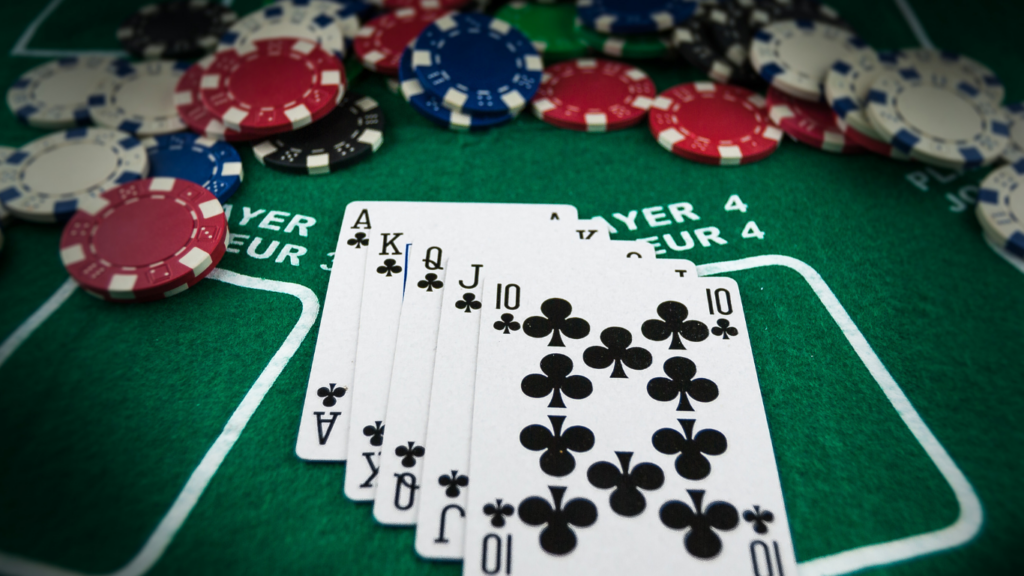What Makes a Game Skill-Based?
A game is skill-based when outcomes rely on strategy, decision-making, or execution rather than random chance. It rewards players for their expertise, practice, and adaptability over time.
- Mastery of Mechanics: Games requiring precise control, timing, or understanding of complex systems showcase player ability. For example, fighting games and real-time strategy games heavily rely on mechanical aptitude.
- Strategic Thinking: Titles emphasizing planning and long-term resource management, like chess or turn-based strategy games, reward foresight and tactical depth.
- Consistent Progression: A skill-based game ensures players improve through learning and practice rather than relying on randomized success. For instance, competitive multiplayer games like Counter-Strike value individual learning curves.
- Balanced Environment: Fair play ensures skills matter most. Games providing equal opportunities and minimizing external factors, such as luck or unfair variables, are better at emphasizing skill.
The Importance of Skill Over Luck in Gaming
Skill-based gaming places control in the hands of the player. Success is determined by:
- personal ability
- strategy
- consistent practice
not external randomness. This dynamic creates a meritocratic environment where effort directly influences outcomes.
Games emphasizing skill offer a fair playing field. Players compete on equal terms, with victory hinging on their mastery of mechanics or strategies. In contrast, luck-based games rely on unpredictable events that often undermine individual competence.
Skill-driven games encourage personal growth. By practicing specific elements like timing, precision, and decision-making, players can observe measurable improvement. For example, in titles like StarCraft II, learning build orders and micromanagement leads to steady progression.
Competitive balance is vital for rewarding skill. Developers often fine-tune these games to eliminate unfair advantages and prioritize gameplay that rewards technical and tactical expertise. Chess exemplifies this, as its static rules rely solely on player intellect.
Focusing on skill builds a deeper connection to the game. Players feel their achievements are earned and reflect their effort, making victories more satisfying and fostering a lasting engagement.
Top Games Where Skills Matter More Than Luck

Certain games stand out for rewarding skill, strategy, and consistent practice over random chance. These titles demand mastery, offering a merit-based experience that fosters growth and engagement.
Chess: The Ultimate Game of Strategy
Chess epitomizes skill-based gaming through its reliance on strategy and foresight. Players must analyze countless moves, predict opponents’ strategies, and adapt plans dynamically. Its turn-based nature ensures luck has no influence since every result depends solely on decision-making. The depth of chess continues to attract competitive players, with world champions gaining prominence through skill alone.
StarCraft II: A Test of Real-Time Strategy
StarCraft II challenges players to manage resources, build armies, and simultaneously execute complex maneuvers. Success depends on multitasking, quick decision-making, and a deep understanding of unit mechanics, all in real time. Matches often pit evenly-matched players against each other, with victory going to those who outmaneuver their opponents rather than relying on random outcomes.
Counter-Strike: Global Offensive: Precision and Teamwork
In Counter-Strike: Global Offensive, even the slightest misstep can determine the match’s outcome, making precision and teamwork essential. Players refine skills such as aiming, map knowledge, and communication to outplay opponents. No random elements, like card draws or dice rolls, exist in CS:GO, ensuring that winning teams rely entirely on superior strategy and coordination.
Rocket League: Mastery of Physics and Control
Rocket League combines vehicle mechanics with soccer-inspired gameplay, rewarding players for accuracy, timing, and ball control rather than chance. Mastery comes from understanding physics and perfecting aerial maneuvers through practice. Team synergy also plays a critical role in success, as coordinated passes and defensive plays showcase skillful execution over luck.
Dota 2: Strategic Depth and Execution
Dota 2 boasts immense strategic complexity with its vast hero pool, item builds, and team dynamics. Success involves analyzing opponents’ picks, allocating resources effectively, and executing flawless team fights. Random factors like critical hits exist but rarely determine outcomes; strategic depth and precise execution predominantly drive victories, exemplifying a commitment to skill-based gameplay.



 Veronique Godinezie – Entertainment & Gambling Trends Writer
Veronique Godinezie is an expert in the ever-evolving relationship between gambling and entertainment, serving as a Gambling Trends Writer at Gamble Wise Roll. With a keen interest in how gaming intersects with pop culture, esports, and digital innovation, she explores the latest trends that are redefining the gambling experience. From interactive betting experiences and skill-based gambling to the rise of virtual casinos and celebrity-endorsed gaming platforms, Veronique provides engaging and forward-thinking content that keeps readers informed about the future of gambling. Her storytelling brings an exciting and dynamic perspective to Gamble Wise Roll, offering insights into how the industry continues to evolve in the digital age.
Veronique Godinezie – Entertainment & Gambling Trends Writer
Veronique Godinezie is an expert in the ever-evolving relationship between gambling and entertainment, serving as a Gambling Trends Writer at Gamble Wise Roll. With a keen interest in how gaming intersects with pop culture, esports, and digital innovation, she explores the latest trends that are redefining the gambling experience. From interactive betting experiences and skill-based gambling to the rise of virtual casinos and celebrity-endorsed gaming platforms, Veronique provides engaging and forward-thinking content that keeps readers informed about the future of gambling. Her storytelling brings an exciting and dynamic perspective to Gamble Wise Roll, offering insights into how the industry continues to evolve in the digital age.
